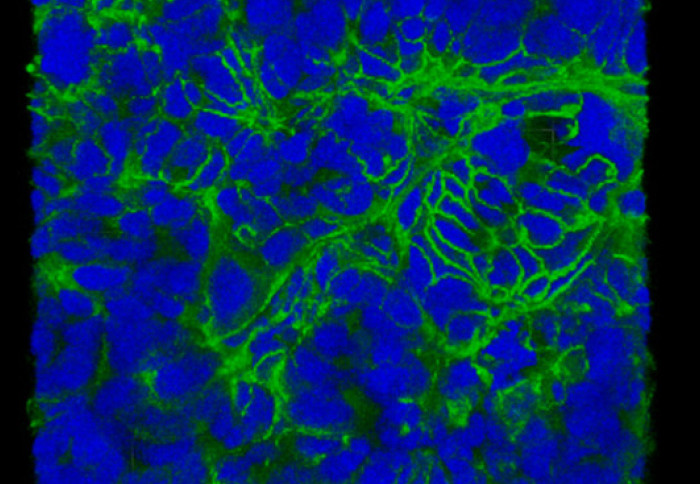Organ-on-a-Chip Technology Grant with Emulate Inc.

Cancer cell monolayers
ICB CDT student Jake Samuel, along with Dr Nazila Kamaly and Prof Oscar Ces, were awarded a grant by Emulate Inc. for organ-on-a-chip technology
The grant from Emulate Inc provided equipment, consumables and research technician support to generate proof-of-concept data for novel biomicrofluidic models.
We grew gastrointestinal cancer cells on flexible, porous membranes to replicate the gut barrier found in humans. The interesting part about these membranes is that they could be stretched using pneumatically actuated vacuum channels. This stretch replicated peristalsis (contractions that move digesta along the GI tract) and stimulated cells on our microfluidic devices to form undulant momolayers reminiscent of those found in the living gut. We then used immunofluorescence microscopy and rendering techniques to produce images of these cancer cell monolayers (see attached). These images show the cell nuclei in blue (Hoescht stain) and zonula occludens 1 (ZO-1 monoclonal antibody), a protein responsible for the physical interactions between cells, in green.
This demonstrates the advantages of using organ-on-a-chip technology to model human physiology, as the same cells grown in traditional cell culture platforms would display a much more squamous, flattened phenotype which is not representative of gut physiology.
Article text (excluding photos or graphics) © Imperial College London.
Photos and graphics subject to third party copyright used with permission or © Imperial College London.
Reporter
Hannah Cameron
Department of Chemistry